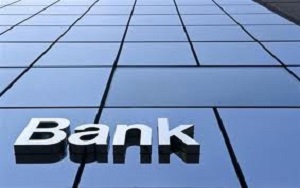Captive Bank
A captive bank is a wholly- or partially-owned subsidiary of a company that plays its role as a bank only for the benefit of one legal entity (usually the same company that owns the bank), its customers, and suppliers.
Captive banks generally offer all the basic baking services such as safe keeping of deposits. However, some captive banks also offer additional services like merchant banking and financing.
One very common, though not defining, characteristic of captive banks is that they are usually offshore banks. Offshore banks are banks that are located outside the country of residence of the depositor. The countries in which offshore banks are usually located are called tax havens since they have low tax jurisdictions, which is obviously advantageous financially and even legally.
Offshore banks, and thus captive banks, enjoy the following benefits due to the banking laws of the countries where they are usually located:
• Lower taxes – As mentioned earlier, these banks are located in tax havens. Transferring savings and investments to the captive bank means less tax liability for the bank customers since their country of origin has much higher tax rates.
• Greater privacy – Depending on the country where the bank is located, banking secrecy laws are usually more stringent. In some cases, anonymous bank accounts are even permitted.
• Easy access to funds – Due to lax banking laws, it may be easier to move around large sums of money.

Captive Bank Ownership
There are two distinct types of international banks:
Class A Banks
A Class A bank is typically a storefront business operation, often accompanied by a marquee. It is a combination banking entity, accepting public deposits for both private and business accounts. In the United Sates, we are most familiar with the Class A bank. This type of banking license is held by all the “majors” and frequently has the customary vault, tellers and ATM machines. Examples of international Class A banks would include Credite Suisse, Barclays & Royal Bank of Canada.
Class B Banks
The second type of international bank is a “Class B” bank or a “Private International Bank.” This bank is usually restricted from doing business with the citizens of the host country and does not maintain a presence on “the street”. A representative, usually an attorney, will post a brass plate on their office building exterior and all business is conducted via fax, telephone and mail. Class B banks are able to issue virtually all of the same financial instruments as that of a Class A bank; however, they cannot provide services to citizens of the host country. All solicitations need to be carefully monitored. Advertisements are restricted to the appropriate international periodicals. Private International Banks tend to have higher profit margins and lower capital outlays.
Captive (Offshore) Banks in the U.S.
Are you aware that the U.S. licenses two banking entities that are virtually identical to the classic definition of an offshore bank? Edge Corporations and International Banking Facilities are shell banking units that present ownership with the benefits of being a bank with reduced regulation and lower reserve requirements. To those who would own an offshore banking entity, these facilities provide entrée into the U.S. and the prestige that comes with it.
Edge Act Corporation
A federally-chartered U.S. corporation that is only allowed to engage in international banking or other financial transactions related to international business. Authority established by the Edge Act in 1919. International Banking Act of 1978 allows foreign banks to own Edge Act corporations.
International Banking Facilities (IBFs)
Institutions in the United States that allow depository (banks) to offer services to foreign residents and institutions free of some Federal Reserve requirements and some state and local income taxes.
Conclusion
Banking – in all its various structures – is essentially the business of moving money for profit while servicing the world economy. We think this is an important perspective for business owners to keep in mind. Also, within this very competitive marketplace, governments feverishly compete for the critical influx of business capital. A knowledgeable entrepreneur can use this information to their competitive advantage.











































